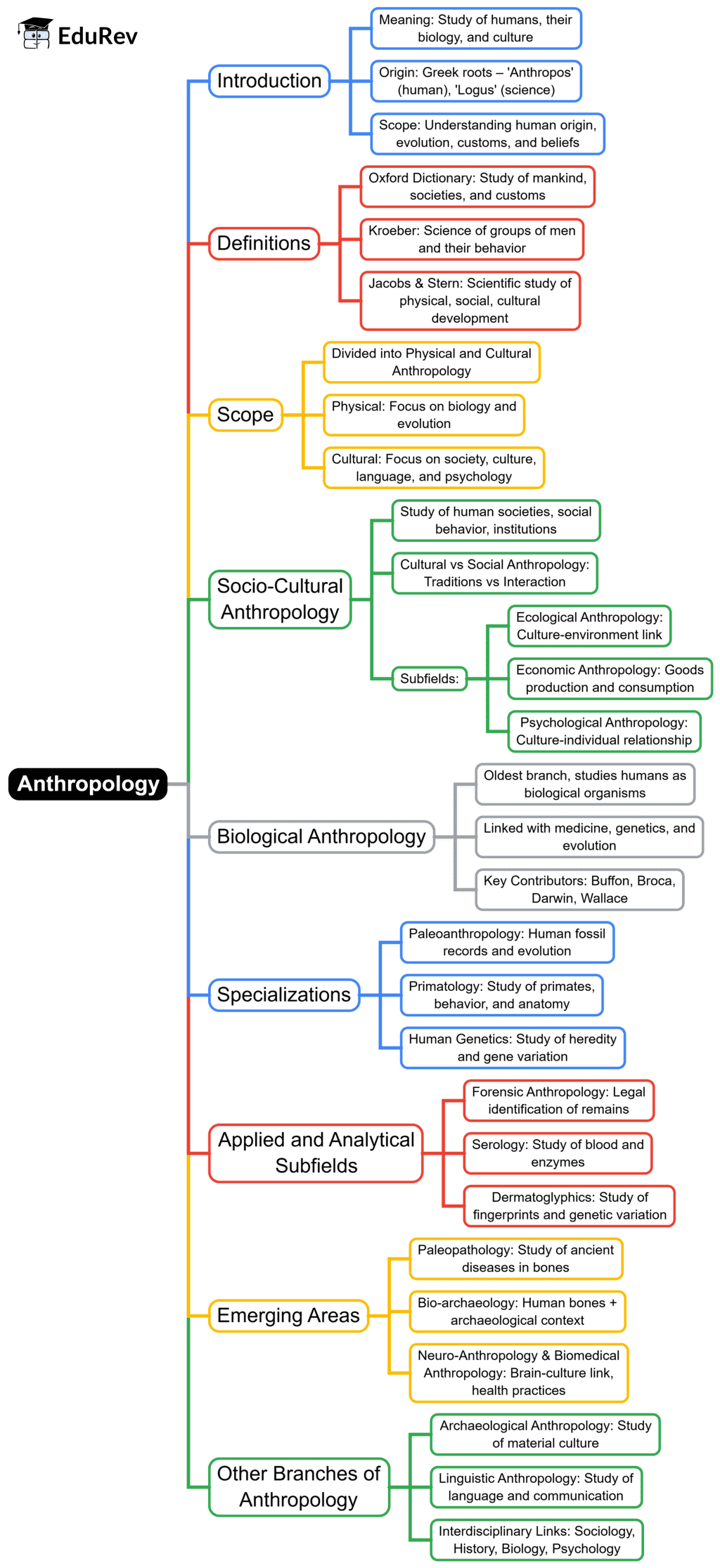UPSC Exam > UPSC Notes > Anthropology Optional for UPSC > Mind Map: Introduction to Anthropology
Mind Map: Introduction to Anthropology | Anthropology Optional for UPSC PDF Download

The document Mind Map: Introduction to Anthropology | Anthropology Optional for UPSC is a part of the UPSC Course Anthropology Optional for UPSC.
All you need of UPSC at this link: UPSC
|
209 videos|299 docs
|
FAQs on Mind Map: Introduction to Anthropology - Anthropology Optional for UPSC
| 1. What is the UPSC exam and why is it important? |  |
Ans. The UPSC (Union Public Service Commission) exam is a prestigious competitive examination in India conducted to recruit candidates for various civil services positions, including the Indian Administrative Service (IAS), Indian Police Service (IPS), and Indian Foreign Service (IFS). It is important as it provides a pathway for individuals to serve in key governmental roles, influencing policy and administration at various levels.
| 2. What are the stages of the UPSC exam? |  |
Ans. The UPSC exam consists of three stages: the Preliminary Examination, the Main Examination, and the Personality Test (Interview). The Preliminary Exam is a screening test with objective-type questions, the Main Exam involves subjective-type questions across several papers, and the Personality Test evaluates candidates through a personal interview.
| 3. What is the eligibility criteria for taking the UPSC exam? |  |
Ans. To be eligible for the UPSC exam, candidates must be Indian citizens, hold a bachelor's degree from a recognized university, and be within the age limit set by the commission, which varies for different categories. Generally, the age limit ranges from 21 to 32 years, with relaxations for reserved categories.
| 4. How should one prepare for the UPSC exam? |  |
Ans. Effective preparation for the UPSC exam involves a well-structured study plan, regular revision, and practice with previous years' question papers. Candidates should focus on current affairs, general studies, and specific subjects based on the syllabus. Joining coaching classes or study groups can also be beneficial for guidance and motivation.
| 5. What are some common mistakes to avoid while preparing for the UPSC exam? |  |
Ans. Common mistakes include inadequate time management, neglecting current affairs, failing to revise regularly, and relying too heavily on coaching without self-study. Candidates should also avoid getting overwhelmed by the vast syllabus and should focus on quality over quantity in their study materials.
Related Searches





















